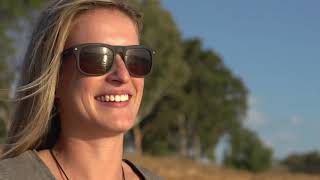Blackwater Law successfully represented Catherine in a brain injury claim after she suffered a long-term brain injury as a result of a car accident.
Brain scanning technology is to be trialled with 3 rugby union clubs, to reduce the chance of serious brain injury in the sport. East London Rugby Club, Cornish Pirates and Sevenoaks Rugby Club are currently testing the device.
The initiative is backed by Love of the Game, a not for profit organisation whose president is former England international Simon Shaw.
Researchers will use a WAVi device to monitor brain patterns of players to spot and assess concussions. The device itself has several sensors that are worn on the head of the player, where it scans the brain for injury.
The idea of the device would be to use it in any cases of suspected concussion during a game. This will help the medical teams to better understand the condition of the player, and if or when it is safe to resume playing.
This in turn could help to reduce the number of brain injury compensation claims, that have begun to arise due to head injuries in the sport.
It comes after recent discussions surrounding early on set dementia in former rugby players. Which are believed to be caused by major and minor concussions during rugby matches.
Recently, former England international Steve Thompson described how he cannot remember a single moment of England’s 2003 World Cup win. This has been caused by a diagnosis of early onset dementia and probable CTE.
Concussion in Rugby
A concussion is a brain injury caused by an impact to the head. These can occur in various degrees of severity, from repeated minor knocks, to large event traumatic brain injuries.
Loss of consciousness occurs less than 10% of the time, which makes concussion particularly hard to spot. Smaller concussions will also not show any structural damage to the brain during a conventional scan.
Due to the nature of rugby, regular and repeated impacts to the head rapidly increase the chances of small, undetectable concussion events.
According to the data collected through the RFU’s Community Injury Surveillance & Prevention. There is around one concussion every two to three games.
If a concussion is not spotted, a player is much more likely to suffer from ‘second impact syndrome.’ This occurs when the player suffers a second traumatic impact, before a first has fully recovered. This can lead to rapid swelling of the brain, and in some instances death.
Failure to spot and mitigate the effects of a concussion can also lead to brain injury compensation claims.
Legal Implications
The issue of concussions in the game has now led to legal ramifications for the sport’s governing bodies.
In October of 2021 a group of former professionals announced they would be beginning legal action against the RFL. Several the complainants have been diagnosed with early onset dementia and CTE, because of damage sustained in their playing careers.
The aim of these lawsuits, the players say, is to help make the game safer for future generations and not for financial benefit.
Specialist brain injury solicitors
Here at Blackwater law, we have a team of experienced solicitors, who can help you recover compensation brain injuries.
Our extensive knowledge means we can deal with major traumatic brain injuries, as well as concussive brain injuries caused over a long period of time.
You can use our personal injury calculator, to see how much your claim could be valued at. Please note that this will only be an initial estimate.







